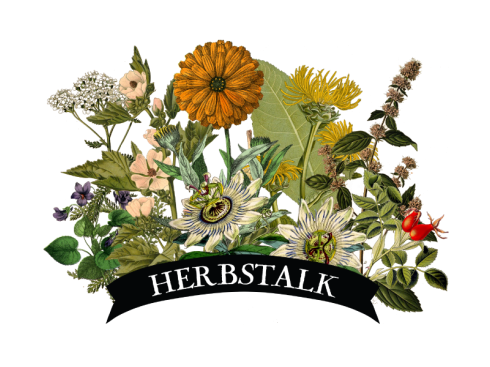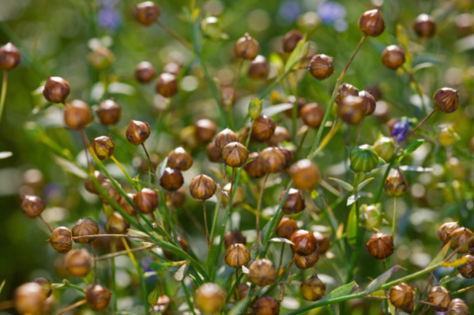|
by Ray Lardie The cooling temperatures, the changing leaves: the end of October brings Samhain to mind for many people, but this ancient holiday was not celebrated in many parts of Europe. In Russia, a different holiday falls at this time of year: the Feast of Paraskeva. Who is St. Paraskeva? Who is Mokosh’? The Feast of Paraskeva occurs on October 28th and honors Saint Paraskeva, a martyr saint whose name means Friday. The Saint Paraskeva is venerated in Russia, however, took on many aspects of the Slavic earth goddess Mokosh’, also known as Mat’ Syra Zemlya, Damp Mother Earth. Thus in Russia and some other Slavic countries, Saint Paraskeva is associated with the earth, water, fertility, textile work like weaving and embroidery, childbirth, the home, and herbs, among other things. Crossroads and sacred springs were often sites of her chapels—both clear connections to Mokosh’. In fact, Saint Paraskeva is often depicted in Mokosh’s traditional pose: elbows bent, hands held up in blessing. How is the day celebrated? Rest: Folklore surrounding the holiday tells us more about what traditionally wasn’t done. Out of respect for Saint Paraskeva and thus by extension Mat’ Syra Zemlya, people didn’t weave, embroider, sew, or pursue other textile arts on the Feast of Paraskeva. In fact, one was supposed to take a break from textile arts on Fridays generally, or risk a warning punishment in the form of arthritic pain in the hands, eye irritations, or worsening sight—all maladies that would make textile crafts much more difficult. Offerings: Aside from resting from work, people would make offerings of flax skeins by tossing them into a well or one of Paraskeva’s sacred springs. That does neatly remove the ability to spin! If you don’t happen to have a skein of flax fiber, tossing coins is also acceptable. Purification: It was also a time to purify and bless one’s house and animals by sprinkling them with water, ideally from a sacred spring. Wedding Wishes: Mokosh’ is said to oversee autumn, so it’s no surprise that Paraskeva would be addressed by women seeking to marry. Traditionally, the autumn wedding season began two weeks before the Feast of Paraskeva on the Feast of Pokrov, and the two were addressed together in a prayer: Father-Pokrov, Mother-Paraskeva, cover my head with a bridal veil, with a married woman’s headdress. Paraskeva Herbs The other name for the Feast of Parakeva is Paraskeva-l’nyanitsa, Paraskeva the Flaxen, since the day marked the start of flax work, even if the holiday itself was a day of rest. FLAX, Linum usitatissimum, called лен/lyon, has importance as not only a source of cloth, but also as a medicinal herb. A sweet, warming, moistening herb, flaxseeds are worked with in infusions and decoctions to address gut inflammation, including constipation and food poisoning, as well as respiratory inflammation, including bronchitis. Flaxseed oil regularly massaged into the chest helps relieve chronic bronchitis. Flaxseeds help address dry, atrophied states in the joints and muscles as well. Russian herbalism heats up the dry seeds to apply them externally to sore muscles and joints; Western herbalism makes a thick mush of the seeds with hot water to apply externally for the same reason. In both cases, flaxseed will nourish the tendons with its rich oil content, though one method is messier than the other. Curiously to me, a poultice of flaxseed can soothe eye irritations—hopefully not ones brought on by spinning on Fridays! THYME, Thymus serpellum, called тимьян/tim’yan, is associated with Mokosh’—it’s also known as ‘our lady’s herb’ and eventually became associated with Theotokos/Mary after Christianization. Before that, thyme was added to sacrificial holy fires, where the pleasing scent was a sign of the gods’ acceptance of the offering. As a common kitchen herb and thus readily accessible to many people, thyme makes an excellent choice for many situations. Thyme helps alleviate coughs, bronchitis, and other respiratory infections as an antimicrobial, antispasmodic, and expectorant. The antispasmodic and aromatic qualities also make thyme a good digestive aid, relieving bloating and stimulating the appetite. Externally, a thyme wash can help deal with fungal issues like athlete’s foot and other skin issues. SPEEDWELL, Veronica officinalis, or вероника/veronika, is associated with Mokosh’ in a round-about way. Also called змеиная трава/zmeinaya trava, snake herb, the name speaks to how it’s worked with in Russian herbalism: to treat snakebites. Snakes are one of the many animals associated with Mokosh’, here in her more chthonic aspects, and so speedwell in particular is hers as well. Russian herbalism works with speedwell for more than just snakebites, however. Its expectorant properties lend itself to helping coughs and hoarseness, and an infusion is taken hot to soothe headaches, nerves, and to help one sleep. Externally speedwell is combined with ground ivy to address eczema, and fresh leaves soaked in water are applied to burns and wounds to speed the healing process. Regardless of whether you observe the Feast of Paraskeva or not, consider the day an invitation to spend time with the land and with the waters, as we in the Northern Hemisphere go further into the dark of the year.  Ray Lardie is a Boston-based clinical herbalist and relentlessly optimistic realist who couldn’t stop learning if they tried. Dedicated to helping people learn to work with herbs and their bodies as partners, not enemies, Ray seeks to build resilience in individuals and communities. They work from Western and Russian herbal medicinal perspectives at Sovereign Birch Herbal, tailoring their approach to fit whole-body, whole-life needs. Ray is ever on the lookout for the seeds of the hopepunk stories and futures we will nourish with one another in this era of climate change. |
Archives
November 2023
Categories
All
|


 RSS Feed
RSS Feed